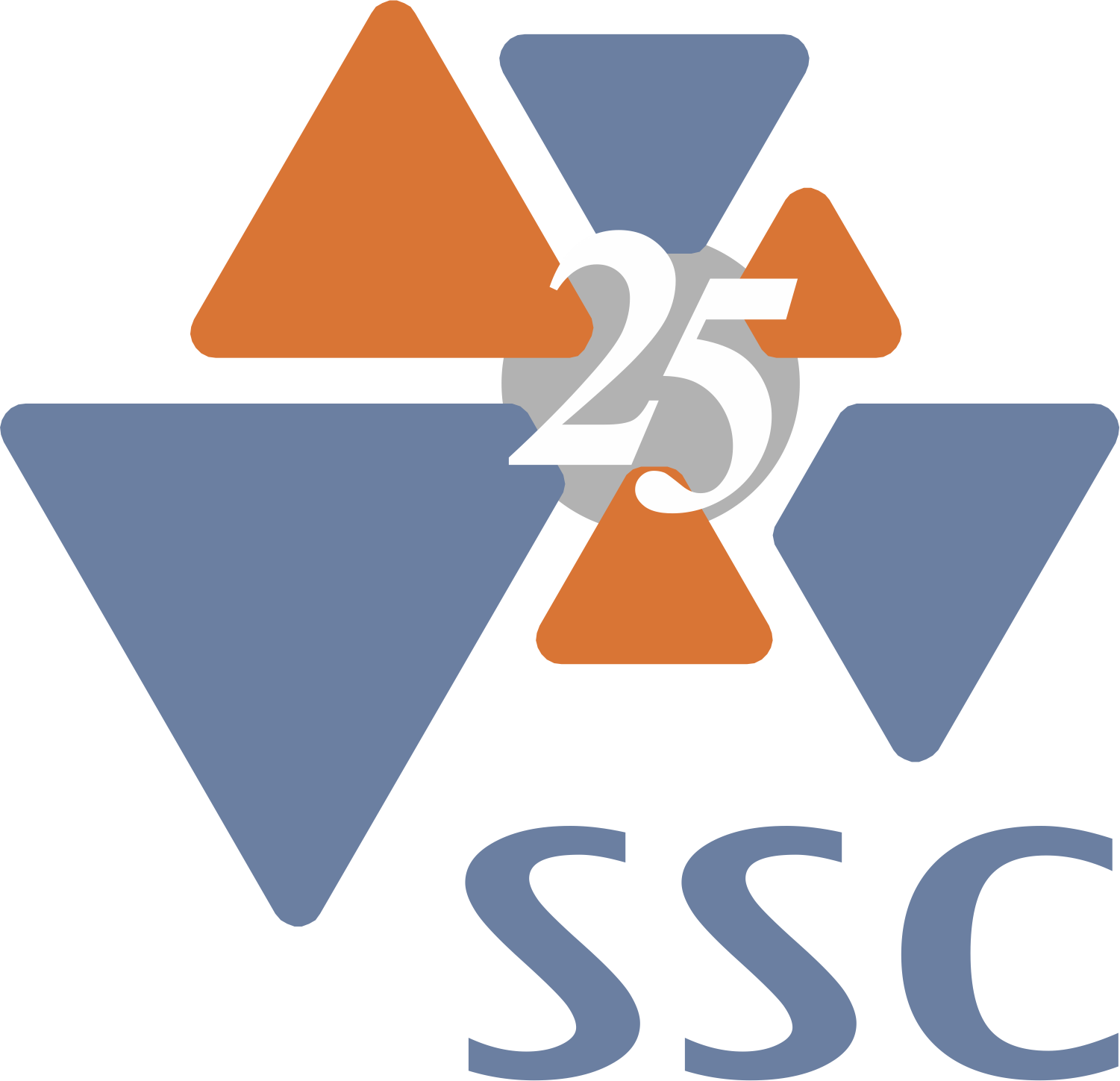Unveiling SSC: The Ultimate Guide To Understanding And Mastering SSC
When it comes to SSC, you’re diving into something that can literally shape your future. Whether you're a student, parent, or educator, SSC holds a massive weight in the world of academics and career planning. But what exactly is SSC? Why does it matter so much? And how can you ace it? Let’s break it down step by step, like we're having a casual chat over coffee.
Picture this: You're sitting in a classroom, and the teacher drops the term "SSC" like it's some kind of magical word that will determine your destiny. Well, guess what? It kinda does. SSC isn't just another acronym—it's the gateway to higher education, scholarships, and even job opportunities. So, buckle up because we're about to decode everything you need to know.
Now, before we deep-dive into the nitty-gritty, let me throw a little teaser your way. SSC stands for Secondary School Certificate, and it's basically the certificate you get after completing your secondary education. Sounds simple, right? But trust me, there's a lot more to it than just a piece of paper. Stick around, and by the end of this, you'll be an SSC pro!
- What Happened To Dana Loesch Face The Truth Behind The Controversy
- Jimmy Fallon Political Party 2024 A Deep Dive Into Comedy Meets Politics
What Exactly is SSC?
Let's start with the basics. SSC, or Secondary School Certificate, is the qualification you earn after finishing your secondary education, typically around the age of 16 or 17. It's like the first big milestone in your academic journey, marking the transition from school to higher education or even the workforce. Think of it as the foundation upon which you'll build your future.
Here’s why SSC is such a big deal: it's not just a certificate; it's a reflection of your hard work, dedication, and potential. Colleges, universities, and employers all take a good look at your SSC results to gauge how serious you are about your education. So, yeah, it's kind of a big deal.
Now, let’s break it down further. SSC exams are usually conducted by state or national boards, depending on where you're from. These boards set the curriculum, conduct the exams, and issue the certificates. It’s like a standardized process to ensure everyone gets a fair shot at proving their worth.
- Hd Hub 4 U Movie Your Ultimate Destination For Cinematic Bliss
- Unlocking The World Of Filmyfly Fan Download Your Ultimate Guide
Why Does SSC Matter So Much?
Alright, let’s get real for a second. Why does everyone make such a fuss about SSC? Well, here's the thing: SSC plays a crucial role in determining your future opportunities. Whether you want to pursue higher education, apply for scholarships, or even land your dream job, your SSC results can make or break your chances.
For instance, most colleges and universities have a minimum SSC score requirement for admissions. If you don’t meet that threshold, you might find yourself on the sidelines while others move forward. Similarly, many scholarships are merit-based, and your SSC grades are often the deciding factor.
But it’s not all doom and gloom. SSC is also a great way to showcase your strengths and interests. If you're passionate about science, math, or the arts, your SSC results can highlight your expertise in those areas. It’s like a personal portfolio that speaks volumes about who you are as a student.
How to Prepare for SSC Exams
Now that we’ve established why SSC matters, let’s talk about how you can prepare for it. Preparing for SSC exams isn’t rocket science, but it does require some strategy and discipline. Here’s a quick rundown:
- Create a Study Plan: Break down your syllabus into manageable chunks and set a timetable. Consistency is key, so stick to your plan as much as possible.
- Practice Past Papers: Past papers are your best friend. They give you an idea of the exam pattern, question types, and help you manage your time better during the actual exam.
- Stay Organized: Keep your notes, textbooks, and study materials in order. The last thing you want is to waste time looking for something important when you’re trying to study.
- Take Breaks: Yes, you heard me right. Taking regular breaks is essential to keep your mind fresh and focused. Overworking yourself can lead to burnout, and no one wants that.
Remember, preparation isn’t just about studying. It’s also about taking care of your mental and physical well-being. Make sure you’re getting enough sleep, eating healthy, and staying active. A balanced lifestyle can do wonders for your performance.
Understanding SSC Boards
SSC exams are conducted by various boards across the globe, each with its own set of rules and regulations. In India, for example, you have the CBSE, ICSE, and various state boards. Each board has its own curriculum, exam pattern, and grading system.
So, why does this matter? Well, understanding your board’s specific requirements can give you a competitive edge. For instance, if you’re studying under the CBSE board, you might need to focus more on practicals and projects. On the other hand, if you’re with a state board, theory might carry more weight.
It’s also important to note that some boards are more recognized than others, especially when it comes to higher education and job opportunities. Doing your research and choosing the right board can make a big difference in the long run.
SSC Syllabus: What to Expect
Let’s talk about the SSC syllabus. Depending on your board, the syllabus can vary, but most of them cover the core subjects like Mathematics, Science, Social Studies, and Languages. Here’s a quick overview:
- Mathematics: Topics like algebra, geometry, trigonometry, and statistics are common. Expect a mix of theoretical questions and problem-solving.
- Science: Physics, Chemistry, and Biology are usually covered, with both theoretical and practical components.
- Social Studies: History, Geography, and Civics are the main areas of focus. Expect a lot of essay-type questions.
- Languages: Depending on your board, you might have to study English, Hindi, or your regional language. Expect reading comprehension, grammar, and writing sections.
It’s important to familiarize yourself with the syllabus early on so you can plan your studies accordingly. Knowing what’s coming your way can help you stay ahead of the game.
SSC Exam Pattern: Demystified
Now that you know what to study, let’s talk about how you’ll be tested. SSC exams typically follow a set pattern, which includes both objective and subjective questions. Here’s a breakdown:
- Objective Questions: These include multiple-choice questions (MCQs), true/false, and fill-in-the-blanks. They’re usually straightforward and test your basic understanding of the subject.
- Subjective Questions: These include short-answer and long-answer questions. They require you to elaborate on your answers and showcase your depth of knowledge.
- Practicals: Depending on your board, you might have to perform practical experiments and write reports. This is especially common in subjects like Science and Mathematics.
Understanding the exam pattern can help you strategize your preparation. For example, if your board places more emphasis on subjective questions, you might want to focus on improving your writing skills.
SSC Grading System: What It Means
Once you’ve taken the SSC exams, it’s time to understand the grading system. Different boards have different ways of evaluating your performance. Some use percentages, while others use grades like A, B, C, etc.
Here’s a quick look at how the grading system works:
- Percentage-Based: Your score is calculated as a percentage of the total marks. For example, if you score 85 out of 100, your percentage is 85%.
- Grade-Based: Your performance is categorized into grades. For instance, A might mean excellent, B might mean good, and so on.
It’s important to understand your board’s grading system so you can set realistic goals and track your progress.
SSC Results: What Happens Next?
After the exams, the next big thing on everyone’s mind is the SSC results. Once the results are out, you’ll receive your SSC certificate, which will be your ticket to higher education and beyond. But what happens next?
Well, it depends on your goals. If you want to pursue higher education, you’ll need to start applying to colleges and universities. If you’re looking for job opportunities, you can start exploring internships and entry-level positions. The possibilities are endless, and your SSC certificate is your key to unlocking them.
Remember, SSC is just the beginning. It’s up to you to take the reins and steer your future in the direction you want.
Common Challenges and How to Overcome Them
Let’s face it; preparing for SSC exams isn’t always smooth sailing. There are bound to be challenges along the way. Here are some common ones and how you can overcome them:
- Time Management: With so much to study, it’s easy to feel overwhelmed. Create a schedule and stick to it. Prioritize subjects that need more attention and allocate time accordingly.
- Exam Anxiety: It’s normal to feel nervous before exams. Practice relaxation techniques like deep breathing or meditation to calm your nerves.
- Distractions: Social media, friends, and other distractions can derail your study plans. Set boundaries and create a conducive study environment to stay focused.
Remember, challenges are just opportunities in disguise. Embrace them, learn from them, and come out stronger on the other side.
Tips for SSC Success
Here are a few final tips to help you ace your SSC exams:
- Stay Consistent: Regular study sessions are more effective than last-minute cramming. Stick to your study plan and review regularly.
- Seek Help When Needed: Don’t hesitate to ask for help if you’re struggling with a particular subject. Teachers, tutors, and classmates can be great resources.
- Stay Positive: A positive mindset can work wonders. Believe in yourself and your abilities, and you’ll be surprised at what you can achieve.
Remember, success isn’t just about grades. It’s about learning, growing, and becoming the best version of yourself.
Final Thoughts
SSC is more than just an exam; it’s a stepping stone to your future. By understanding its importance, preparing diligently, and staying focused, you can set yourself up for success. So, take a deep breath, believe in yourself, and go out there and crush it!
And hey, don’t forget to share your thoughts and experiences in the comments below. Your journey might just inspire someone else to push through their challenges. Until next time, keep learning and keep growing!
References
For more information on SSC, check out these trusted sources:
- CBSE Official Website
- ICSE Official Website
- State Board Education Websites
Table of Contents
- What Exactly is SSC?
- Why Does SSC Matter So Much?
- How to Prepare for SSC Exams
- Understanding SSC Boards
- SSC Syllabus: What to Expect
- SSC Exam Pattern: Demystified
- SSC Grading System: What It Means
- SSC Results: What Happens Next?
- Common Challenges and How to Overcome Them
- Tips for SSC Success
- Final Thoughts
- References
- Pinkheartmovies The Ultimate Guide To Exploring A World Of Entertainment
- Drew Scotts Wife Battles Cancer A Journey Of Strength And Love

SSC Logo LogoDix

Selective Site Consultants

SATHEE SSC Details